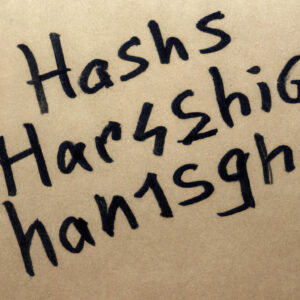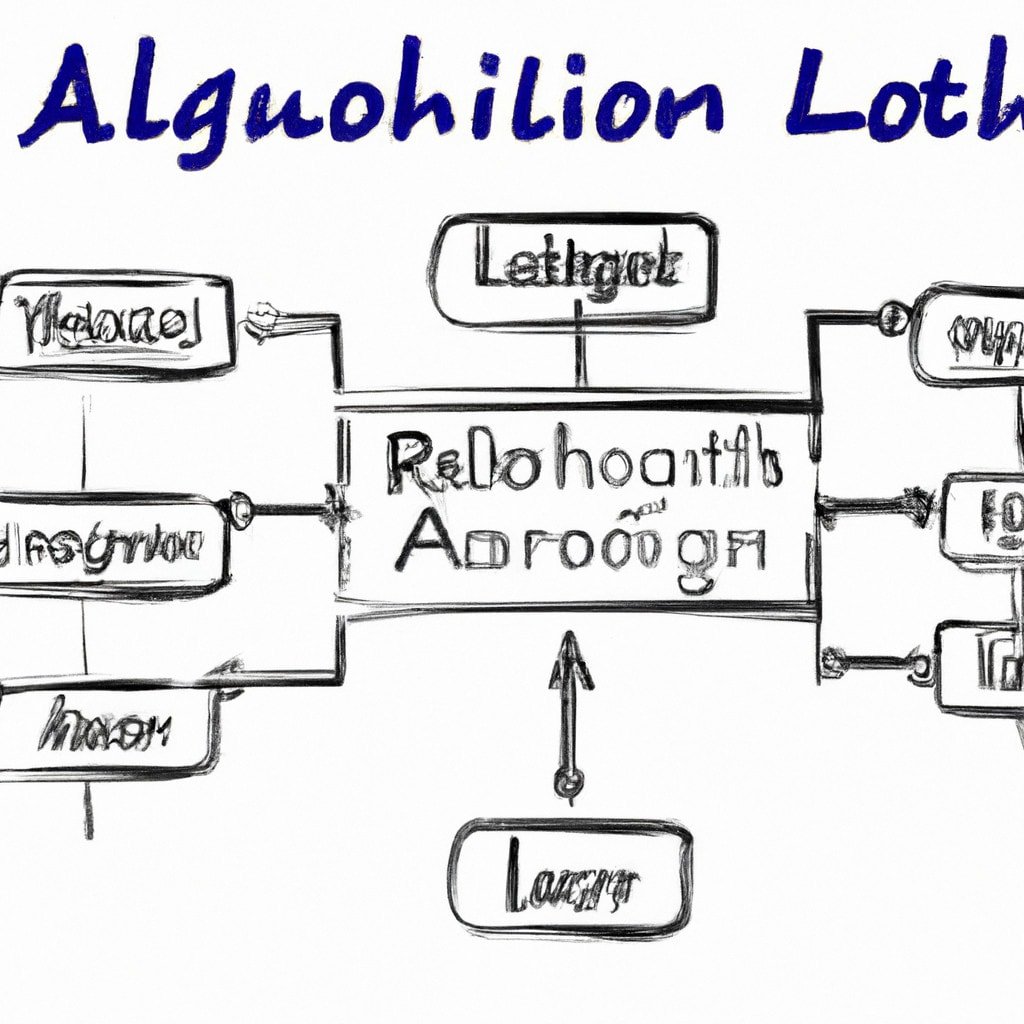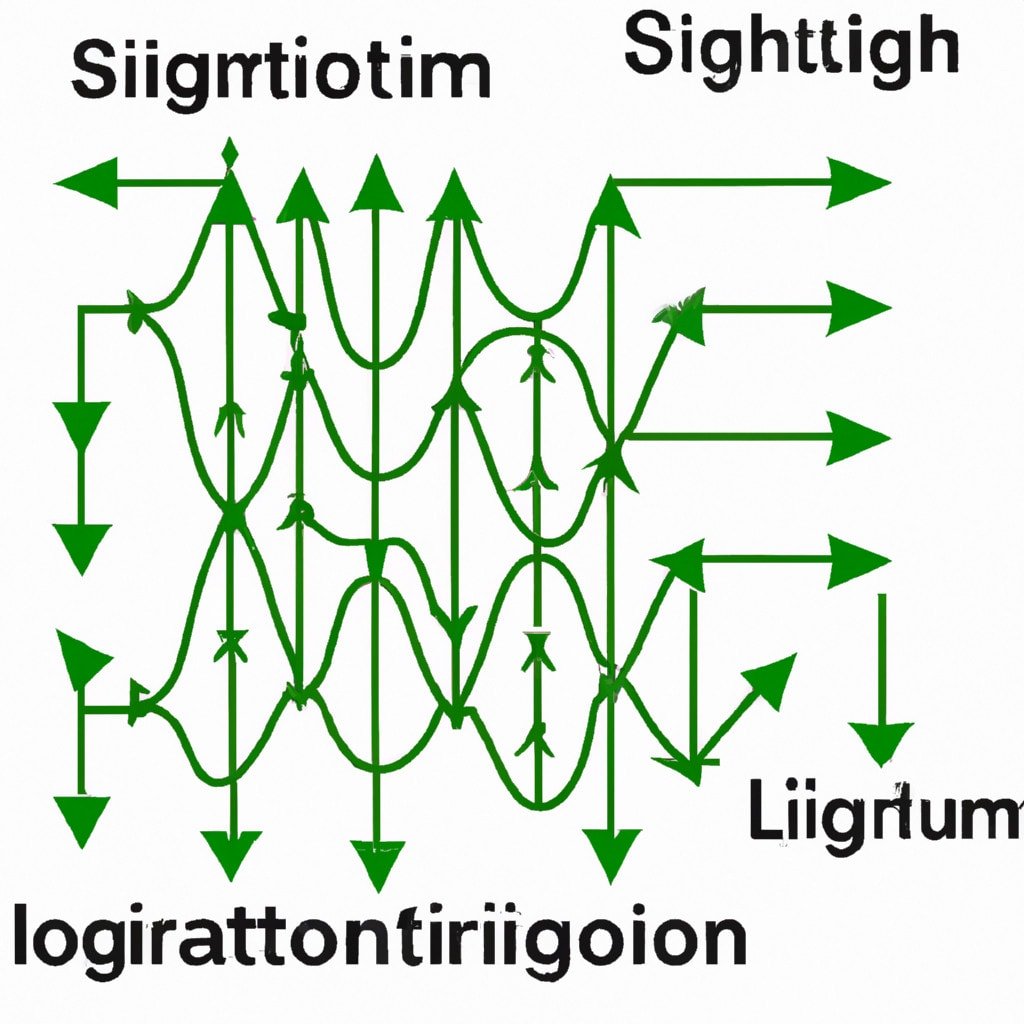Welcome to my blog on algorithms! In today’s post, we’ll be discussing which hash algorithm is fastest. Learn about various hashing techniques and their performance. Let’s dive right in!
Subtitle: Unveiling the Fastest Hash Algorithm for Optimal Performance in Algorithmic Applications
Subtitle: Unveiling the Fastest Hash Algorithm for Optimal Performance in Algorithmic Applications
In the realm of computer science and cryptography, hash algorithms play a crucial role in securing and verifying data integrity. As the demand for faster and more secure algorithms increases, researchers strive to develop the fastest hash algorithm capable of delivering optimal performance across a diverse range of algorithmic applications.
A hash function is a mathematical algorithm that converts an input, or ‘message,’ into a fixed-size string of bytes. This output, known as the ‘hash,’ is typically represented as a sequence of hexadecimal digits. Ideally, a hash function should possess several key properties, including being deterministic, meaning that the same input will always produce the same output, and having a uniform distribution so that any slight alteration to the input results in a significantly different hash.
One such fastest hash algorithm is the MurmurHash, which has gained widespread popularity due to its impressive speed and minimal computational resources. MurmurHash is a non-cryptographic hash function that delivers exceptional performance and a low collision rate. It is particularly suitable for use in hashing non-critical data such as database keys, cache hashes, or network protocol checksums.
Another contender in the race for the fastest hash algorithm is CityHash, developed by Google engineers. CityHash offers remarkable speed and quality, making it ideal for applications requiring large-scale, parallel processing. It is also highly adaptable, allowing developers to optimize the algorithm according to specific hardware configurations.
The FarmHash is yet another high-performance hash algorithm, also developed by Google. It builds upon the strengths of CityHash, further improving upon its speed and adaptability. While FarmHash is not a cryptographic hash function, it is designed to be more resilient against algorithmic complexity attacks, providing an added layer of security.
In summary, the search for the fastest hash algorithm is an ongoing and dynamic process. As technology advances and new challenges emerge, developers must continually adapt and optimize their algorithms to ensure optimal performance in diverse algorithmic applications. MurmurHash, CityHash, and FarmHash are just a few examples of the significant progress made thus far in the quest for unparalleled speed and security.
How to ACTUALLY Solve A Rubik’s Cube In 5 Seconds
XINFIN XDC PASSIVE INCOME 💣XDC IS CHEAP STACK UP NOW🚨XDC WILL YOU BE HOLDING WHEN IT HITS $100
Which one is quicker, MD5 or SHA-256?
In the context of algorithms, MD5 is quicker than SHA-256. MD5, which stands for Message-Digest Algorithm 5, produces a 128-bit hash, while SHA-256, part of the Secure Hash Algorithm 2 family, generates a 256-bit hash.
The reason behind MD5’s faster speed is that it computes smaller hash values compared to SHA-256. However, it’s important to note that MD5 is considered less secure due to its vulnerability to collision attacks. On the other hand, SHA-256 provides a higher level of security and is more resistant to such attacks.
In summary, although MD5 is faster, it’s recommended to use SHA-256 if security is a priority.
Which one is quicker, SHA1 or MD5?
In the context of algorithms, MD5 is generally considered to be quicker than SHA1. However, it’s important to note that MD5 is also less secure compared to SHA1. While both hashing algorithms have their vulnerabilities, the weaknesses in MD5 are more severe and exploitable. Therefore, for applications where security is a priority, it’s recommended to use SHA1 or even stronger alternatives like SHA-256 or SHA-3.
Is SHA-512 superior to SHA-256?
In the context of algorithms, SHA-512 is considered superior to SHA-256 in terms of security, but not necessarily in performance.
Both SHA-256 and SHA-512 belong to the family of Secure Hash Algorithms (SHA) that are widely used for cryptographic applications. The main difference between them is the bit length of their hashes: SHA-256 produces a 256-bit hash, while SHA-512 generates a 512-bit hash.
When it comes to security, SHA-512 has a higher level of protection against collisions and pre-image attacks due to its larger hash size. However, it’s important to note that SHA-256 is still considered a secure hashing algorithm and is resistant to current known attack methods.
In terms of performance, SHA-512 is generally slower than SHA-256 on 32-bit platforms, and faster on 64-bit platforms. This makes the choice between the two hashing algorithms application-dependent. For most purposes, SHA-256 is sufficient, offering a good balance of security and performance. But in cases where maximum security is paramount, SHA-512 might be the preferred option.
In summary, while SHA-512 offers superior security, it may not always be the best choice in terms of performance. It is essential to evaluate the specific requirements of your application before deciding which hashing algorithm to use.
What is the most efficient hash function?
In the context of algorithms, the most efficient hash function depends on the specific use case and data involved. However, MurmurHash and CityHash are two popular, high-performance non-cryptographic hash functions that offer good all-around performance.
MurmurHash is a widely-used, general-purpose hash function known for its speed and strong collision resistance. It has various versions, with MurmurHash3 being the latest.
CityHash is another efficient hash function developed by Google that provides extremely fast hashing for various data sizes. It is particularly optimized for strings and offers excellent performance for this use case.
It is essential to note that these hash functions are not suitable for cryptographic purposes. If you need a hash function for security purposes, cryptographic hash functions like SHA-256 or SHA-3 should be used instead.
What are the top three fastest hash algorithms currently available and how do they compare in terms of performance and security?
The top three fastest hash algorithms currently available are MurmurHash3, CityHash, and xxHash. These hashing algorithms are designed for high performance, often used in non-cryptographic scenarios such as data structures or for generating checksums.
1. MurmurHash3: Created by Austin Appleby, MurmurHash3 provides excellent performance and a low collision rate. It is suitable for general-purpose hash functions where security is not the focus. MurmurHash3 has multiple variants optimized for different data types and sizes.
2. CityHash: Developed by Google, CityHash is another high-performance hashing algorithm mainly used in non-cryptographic applications. It also offers good distribution and low collision rates. Available versions include CityHash64 and CityHash128, which generate 64-bit and 128-bit hashes, respectively.
3. xxHash: Designed by Yann Collet, xxHash is an extremely fast non-cryptographic hashing algorithm that exhibits exceptional performance across various platforms. It’s known for its high quality in terms of distribution, collision rate, and avalanche effect.
In terms of performance, these hash algorithms are generally faster than cryptographic hash algorithms, such as SHA-256 and bcrypt. However, each application and benchmark may result in slightly different rankings depending on the specific data sets and usage scenarios.
When it comes to security, it’s essential to note that these hashing algorithms are not designed for security purposes – they lack the required properties for secure hash functions, such as resistance to preimage and collision attacks. For applications with security requirements, cryptographic hash functions like SHA-3, BLAKE2, or Argon2 are recommended instead.
How does the speed of various hashing algorithms impact their overall effectiveness and use-cases in different applications?
In the context of algorithms, the speed of various hashing algorithms significantly impacts their overall effectiveness and applicability in different use-cases. Hashing algorithms, like any other algorithms, must strike a balance between speed, security, and collision resistance.
Speed: The speed of a hashing algorithm determines how quickly it can generate a hash from a given input. Faster algorithms are often preferred in applications that require real-time processing, such as database indexing, caching, or authentication systems. However, a faster algorithm may also be more susceptible to brute-force attacks in some scenarios, so it is crucial to consider the trade-offs.
Security: A secure hashing algorithm should make it difficult for an attacker to find the original input data based on the hashed output. This means the algorithm should have properties like pre-image resistance, second pre-image resistance, and collision resistance. A more secure algorithm may be slower, but it provides better protection against attacks, making it suitable for security-critical applications like password storage or cryptographic operations.
Collision Resistance: Collision resistance refers to how difficult it is for an attacker to find two different inputs that produce the same hash value. The lower the chances of collision, the more reliable the hashing algorithm is for applications like data integrity checking or digital signatures.
In conclusion, the speed of hashing algorithms plays a crucial role in their overall effectiveness and use-cases. While faster algorithms may be suitable for applications requiring high-performance computations, they may not always be the best choice for security-critical scenarios. As a content creator, it is essential to consider the specific requirements of the applications you discuss and evaluate the trade-offs between speed, security, and collision resistance in the context of those applications.
In terms of computational efficiency, which hashing algorithms consistently rank as the fastest options for data processing and encryption tasks?
In terms of computational efficiency, some of the fastest hashing algorithms for data processing and encryption tasks include MurmurHash, CityHash, and xxHash. These algorithms are designed to provide high performance in various use cases, such as hashing large amounts of data quickly and with minimal computational overhead. It’s important to note that faster hashing algorithms may sacrifice cryptographic security in favor of speed, making them less suitable for security-critical applications. However, they still offer excellent performance for non-cryptographic tasks, such as data partitioning, checksums, and hash-based data structures.




